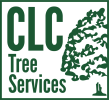
There are two major branches of soil science; pedology and edaphology.
Pedology: the study of the formation, characteristics, and distribution of soils
Edaphology: the study of the influence of soil on living things, esp plants
* Definitions from Collins Dictionary
Pedologists are generally considered scientists who study the soil. If you can’t wrap your mind around the -ologies, just remember the term soil science, as that is what this is all about. Don’t think that makes it any simpler though, as the list of careers in the soil sciences are numerous; ie. agronomists, chemists, geologists, ecologists, microbiologists, and more. What they all have in common though is an interest in soil. Hopefully CLC Tree Services can clean up some of the mud that might surround your knowledge of it.
pH Levels 101
So aside from knowing what the texture of your soil is, what else is there to know about soil? Let’s go back to your high school science class for a moment. Does anyone remember their lessons on pH levels? A little murky there? How about a refresher.
Simply put, pH is the potential of hydrogen. A pH scale measures the amount of hydrogen ion concentration in something. It is measured on a scale of 0-14, with 0 being acidic, 14 alkaline, and 7 representing a neutral pH level.
Why are pH levels important?
Good question. As pH levels measure the acidity of soil, they also give us valuable insight into the health of any plants growing in it. A plant may either thrive or wither, depending upon the pH levels in the soil in which it is found, not to mention the preferred pH of the individual plants. For example; white pines prefer pH levels of between 4.5-6.0, while pecans prefer 6.4-8.0.
Most plants do best with pH levels between 5.5-7.0
What to Do About pH Levels

An example of a typical soil test done by A&L Laboratories. Simple soil tests can be done at home, but CLC Tree Services trusts the professional results from this world-class lab found right here in London, Ontario
When pH levels in the soil aren’t optimized for the plants you have growing, there is something you can do aside from watching your plant die. Education is key. To know what exactly you are dealing with, your first step needs to be soil analysis.
There are simple tests available to check the pH levels of your soil, but the knowledge they impart is invaluable. How can you best decide how to rectify any soil troubles you may have, without first knowing what you are dealing with? Soil too acidic? Add an alkalizing agent like sulfur to increase alkalinity. Likewise, lime can decrease alkalinity by raising the acidity of your soil.
Knowing your soil type and its pH level is the necessary first step before taking any remedial steps. With a soil analysis not only do you have a place to start, but you have the knowledge of what and how much to add to bring your soil back to optimized levels for your plants. In other words, just because a plant is failing, it doesn’t have to die. Corrective care is available to amend your soil and save a sick tree.
pH levels are affected by factors like rain, nitrogen fertilizers, other plants, and subsoil acidity. Regular soil analysis is necessary to monitor soil pH levels.
If you understand that pH levels are important, but are still trying to dig into the what? of what they mean to you, contact CLC Tree Services. Our trained plant health care specialists can undertake the necessary tests to analyze your soil, check your pH levels, make a plan of how best to bring them back into balance, AND explain it all in plain English.
Right, Pam?!




You must be logged in to post a comment.